Taking the self-publishing route is a very satisfying way of entering the world of authorship. While there’s an element of reassurance to having your work accepted by a major publisher, that process strips you of some control over the final product. If you want to keep that control, steer in your preferred creative direction, and reap all the rewards, the DIY approach is right for you.
Of course, the process of pushing through the drafting and editorial stages to arrive at a finished book is just one piece of the puzzle. The obvious second piece is the actual publishing and distribution (turning that creative work into something people can actually buy), which isn’t easy.
Getting work physically printed involves going through a self-publishing house (you get to retain control of the content), while testing the waters through releasing an ebook can easily be achieved using Kindle Direct (Jericho Writers has some pointers for self-publishing on Amazon). But let’s say you’ve done it at this point: you’ve finished your book, and had it published (whether physically or digitally). What’s next?
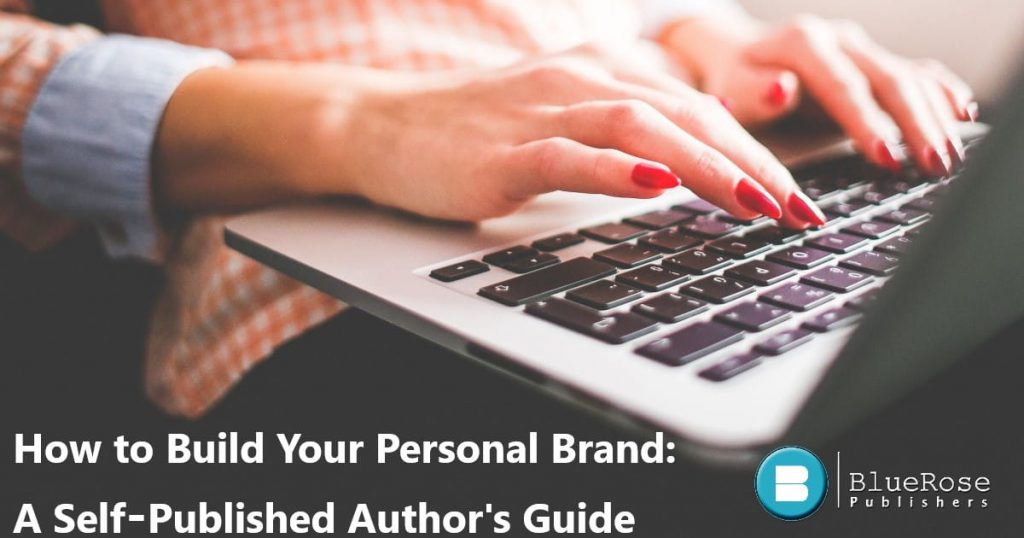
Well, we’re yet to talk about the often-overlooked third piece: promoting your book. Without a publisher spreading the word, you have sole responsibility for making sales — and that means you need to build a personal brand. Here’s how to do it:.
Set up a great website
If you’re aspiring to sell books on name recognition alone, you’ll need an excellent website to keep audience and readers updated on your activity as you share insights and details of your upcoming work. All you need to ensure is that it matches your style, for instance, if you write horror, go for a horror aesthetic.
Having an ordinary website can really undermine your efforts to appear professional, particularly when you’re just getting started — if there isn’t much information about you online yet, your website may be the only place where a prospective reader can learn more.
Also, publishing houses like BlueRose Publishers offer Website Designing in their packages, where the setup of your website is handled by a team who provides you with the necessary details that you would require in case you want to make some changes yourself, in the future.
Provide free snippets
I mentioned sharing pieces of work, and this doesn’t have to be limited to short stories/quotes/poems; you can also share snippets of your published work. Offering the first chapter for free has become quite a common tactic in recent years.
When someone reaches the end, you can offer them a link to buy the entire thing, either from an external store or through your own store (if you’ve set up your own store page, that is). As time goes by, you can even share larger pieces of your work to prompt renewed interest.
For instance, you could make one of your books free on Kindle for a weekend, hoping that people would download it, get hooked, and then want to buy your other works too.
You won’t lose too much money on those short-term sales, especially given the benefits.
Increase activity on social media
If you’re not currently active on social media, you’re at a major disadvantage relative to other self-published authors, because platforms like Twitter and Facebook are invaluable for bringing attention to your work. Whenever someone mentions a book, series, or style that’s comparable to your work, you can join the conversation.
You do need to be somewhat subtle in your approach, naturally. Consistently interjecting with “Hey everyone, I have a book, go buy my book!” will work against you, so try finding people with a lot of followers and simply asking them to give your work a chance (whether you repeatedly hand out a free chapter, or provide free copies of one of your books).
Find compatible communities
The internet is full of niche communities, and no matter what subject matter you think of, there’s bound to be a group of people talking about it through a site like Reddit (or even an exclusive forum). Even more so than through social media, that’s a fantastic avenue for really connecting with people — and the better people know you, the more they’ll understand your work, and the more they’ll want to support you.
You can also visit a community for writers, such as r/writerchat, for advice and support. Ask other writers how they’re promoting their work, and encourage them to read and critique your work. It might not be pleasant to get negative comments, but they’ll all help you in improving your work, making it easier to achieve a mainstream-viable level of polish. After all, while marketing goes a long way, what ultimately matters is the quality of your work.
Follow these tips, commit to the process for long term results, and you should eventually be able to establish a significant personal brand that quickly tells people what kind of work they can expect from you. It’s a difficult thing to achieve, certainly, but no harder than writing a book in the first place!
Hollie Jones is an expert lifestyle blogger who lives for writing. You can read her latest blog posts on Hollie and the Ivy, where she shares tips and advice about her passions while having a lot of fun along the way.




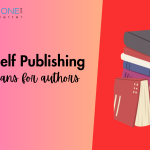
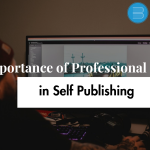
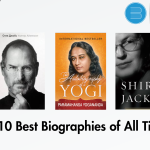



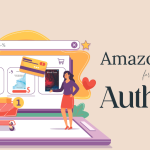

[…] Read: How to build your personal brand as a self-published author […]